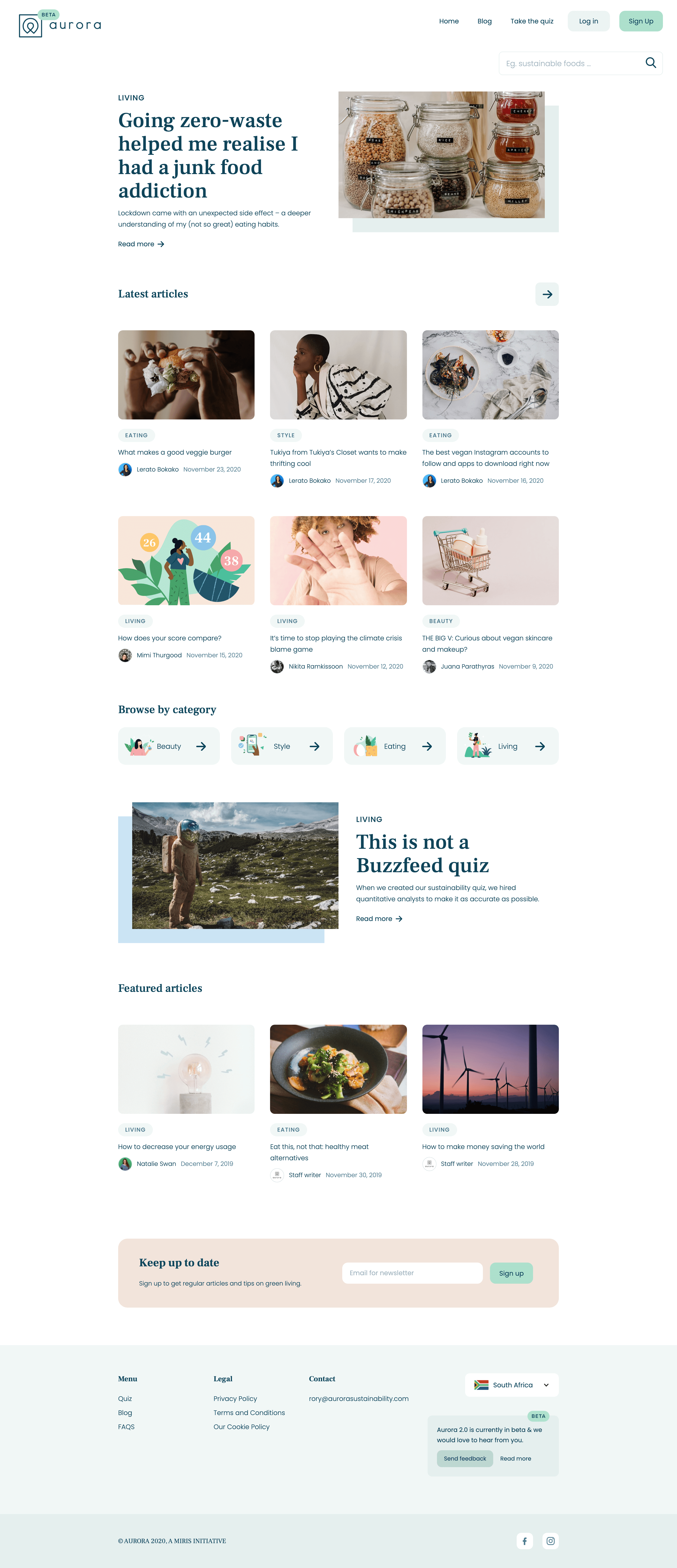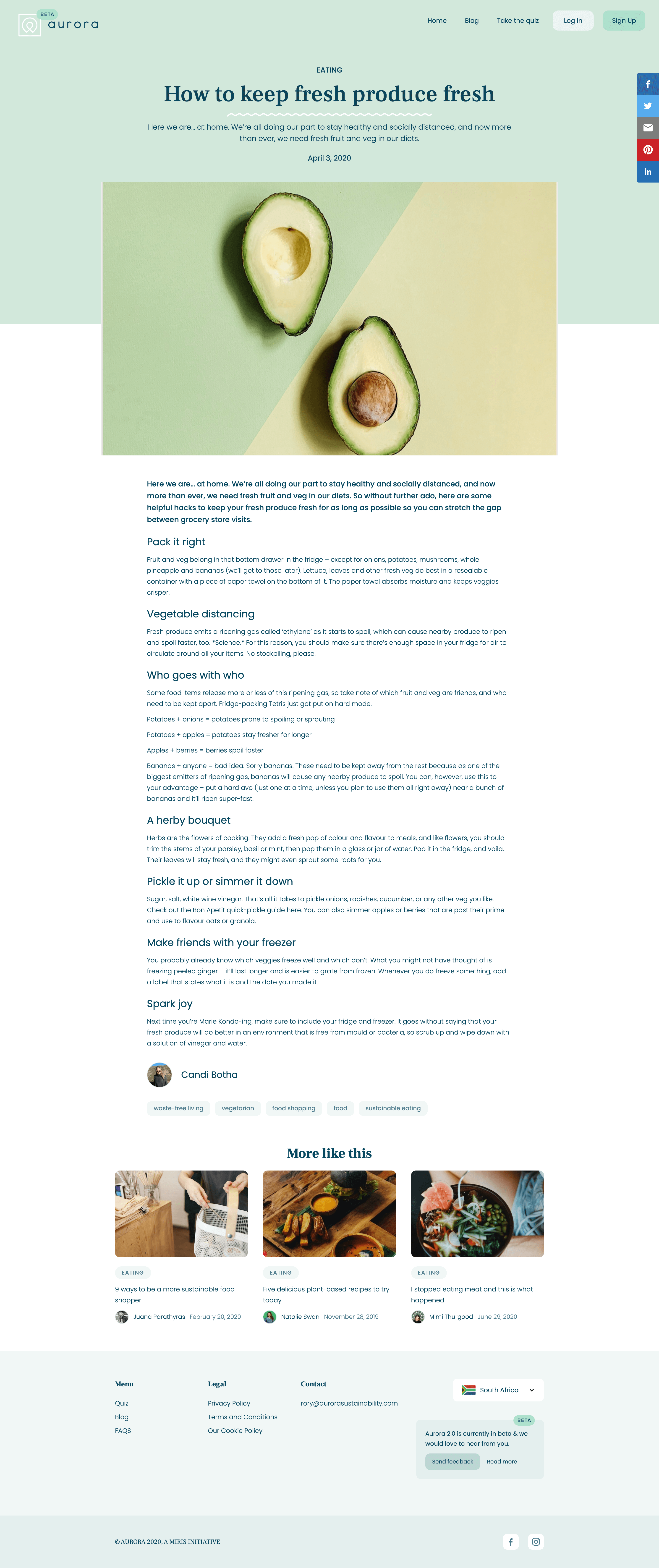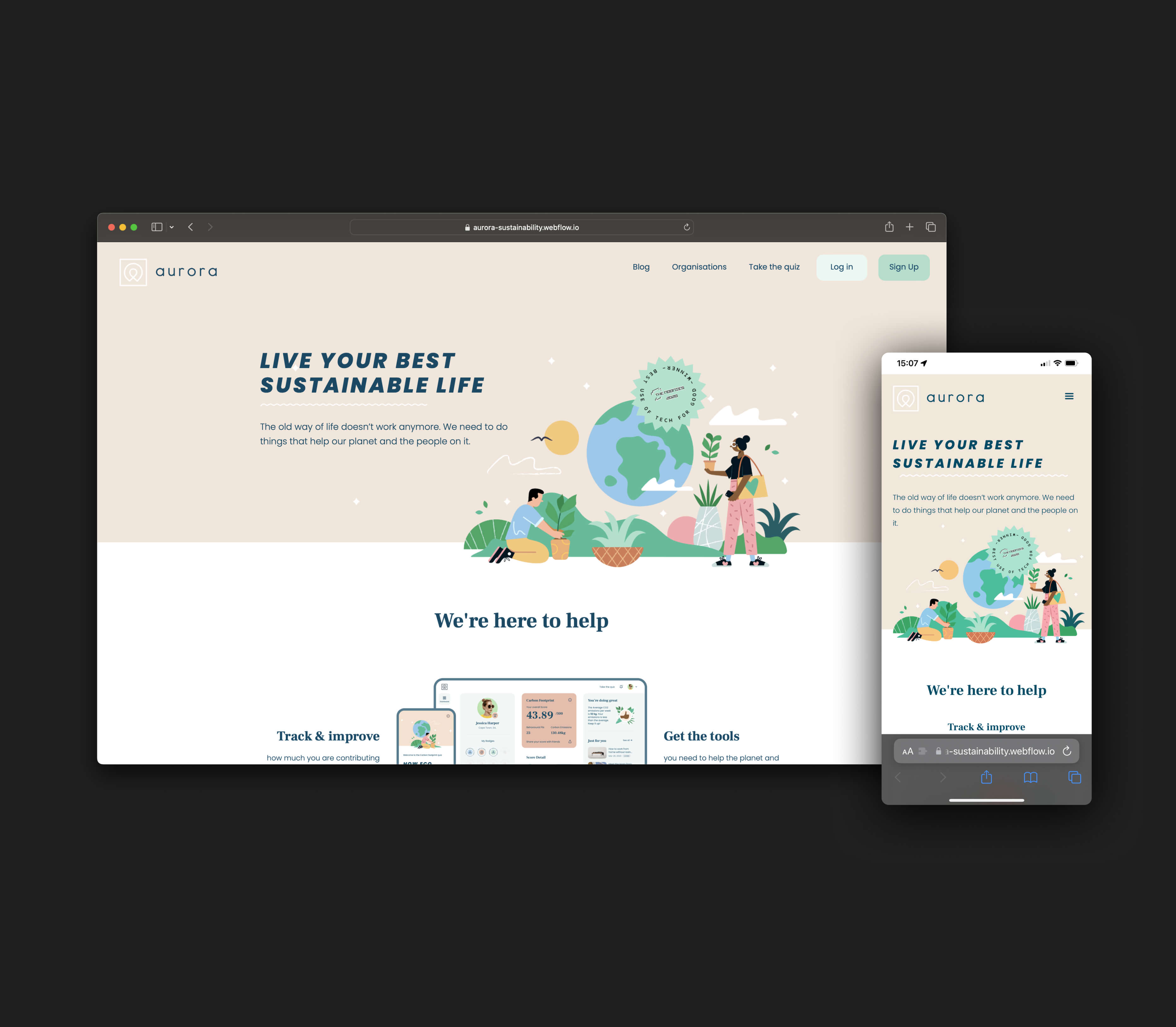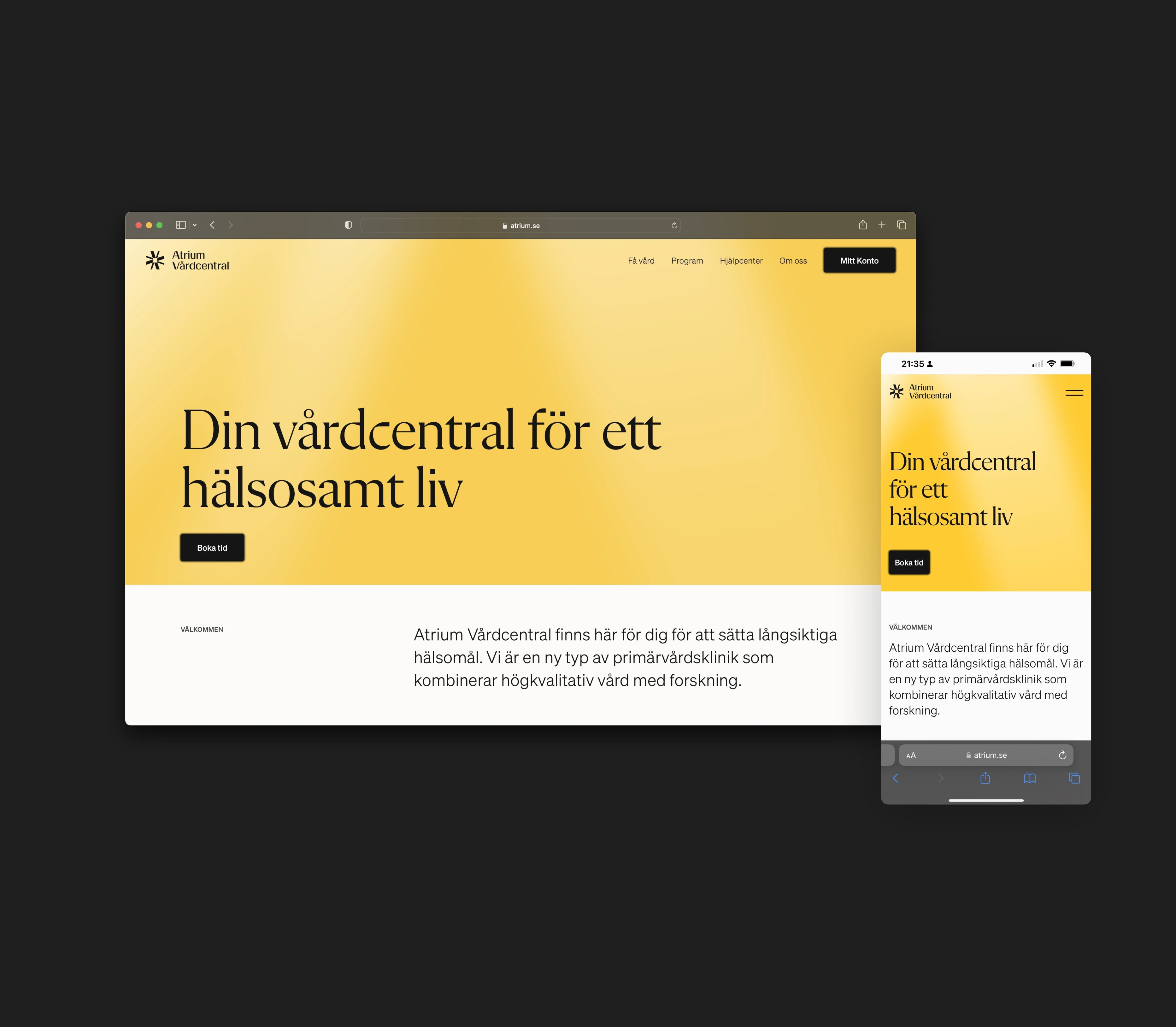Homepage

The Blog

Blog Post

Click to view the user experience flows.
Click to view concept development.
The Aurora project also combined custom tracking and reporting as well as user behaviour tracking utilising Google Tag Manager, Google Analytics, Google BigQuery, SuperMetrics, Google Data Studio, Microsoft Clarity, and Hotjar as well as Intercom integration for live chat and support.
We really loved working on this site and would love for you to take the quiz, find out your Aurora score and do a bit to help save the planet. At the time of writing hundreds of thousands of quizzes have been completed.
Illustrations by hellomisterfrank.com.
Harnessing the potential of digital technology to foster environmental consciousness is a compelling narrative. Our journey with Aurora Sustainability was entrenched in this very essence—creating a platform that beckons individuals to comprehend and reduce their carbon footprint.
Aurora Sustainability is a tech-savvy startup dedicated to simplifying the task of carbon footprint calculation. Through its proprietary tools, it not only helps individuals gauge their carbon emissions but also extends recommendations and green investment opportunities to mitigate the same. Our mission was to translate this noble endeavor into a digital narrative that resonates with the environmentally conscious populace.
Our approach was holistic. We wanted the website to be an educative realm where visitors could not only learn about their carbon emissions but also find viable ways to offset them. The geolocation system embedded in the site is a testament to this approach. It directs users to region-specific pages, ensuring the information is relevant and actionable.
The heart of this project was the quiz feature, where users could determine their Aurora Score—an insightful metric reflecting one's environmental impact. This interactive tool was designed to engage users, provoking thought, and encouraging action towards a greener lifestyle.
The Blog section is another avenue through which Aurora Sustainability extends its educational agenda. By delving into various environmental topics, it nurtures a community of informed and responsible individuals.
Moreover, the project was not devoid of technical intricacies. From custom tracking and reporting to user behavior analysis using a suite of analytics tools like Google Tag Manager, Google Analytics, Google BigQuery, SuperMetrics, Google Data Studio, Microsoft Clarity, and Hotjar, the project was a blend of environmental advocacy and technical prowess.
Furthermore, the live chat and support feature integrated through Intercom adds a layer of real-time engagement, ensuring visitors have a channel for inquiries and support.
The Aurora Sustainability project was a fulfilling journey. It was about molding a digital platform that's not only aesthetically pleasing but also functionally robust and educatively rich. Through this project, we've not only created a digital platform but also a hub for environmental consciousness and action.
We believe the success of this project is reflected in the hundreds of thousands of quizzes completed, each representing an individual's step towards a greener tomorrow.





